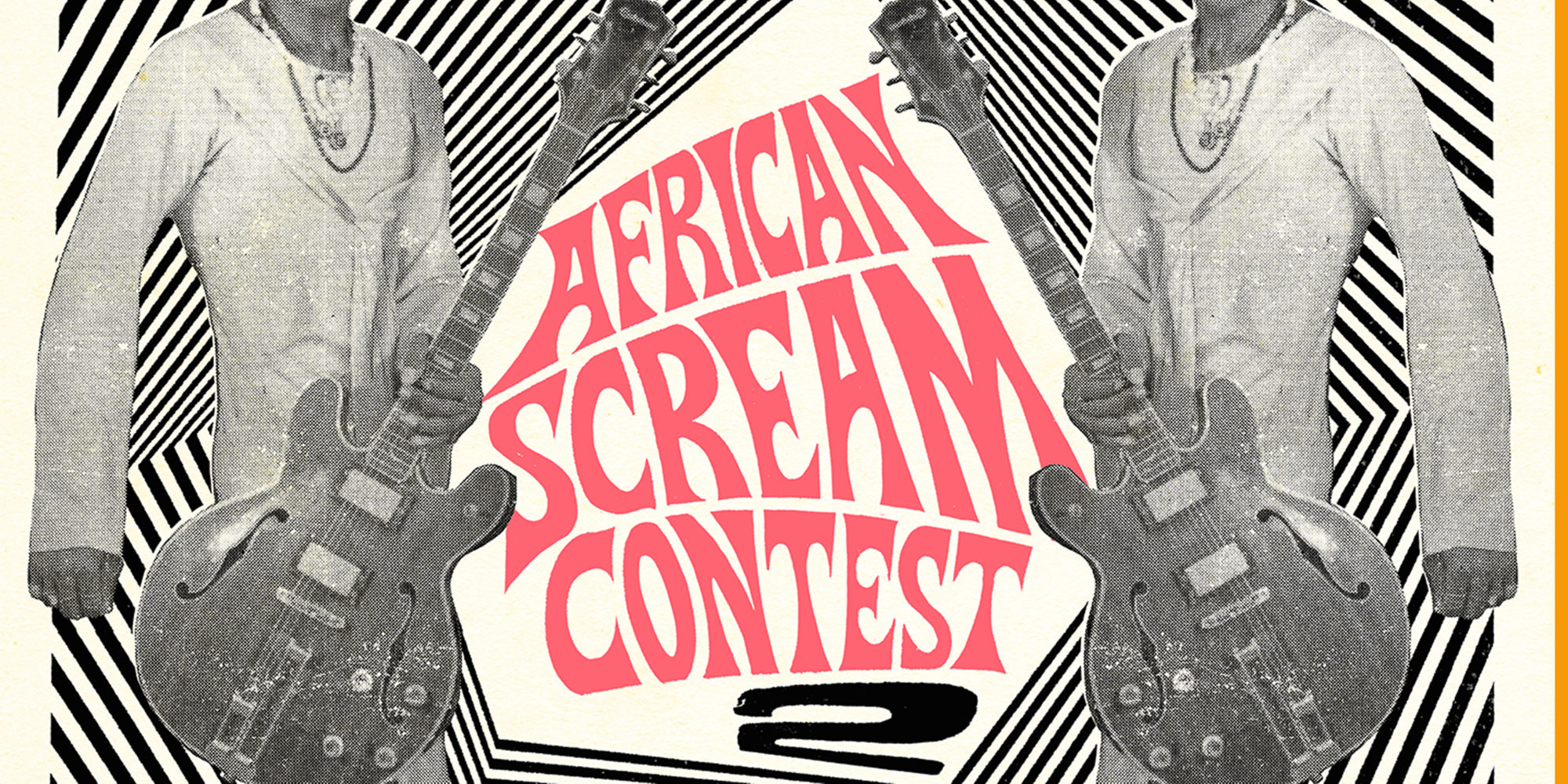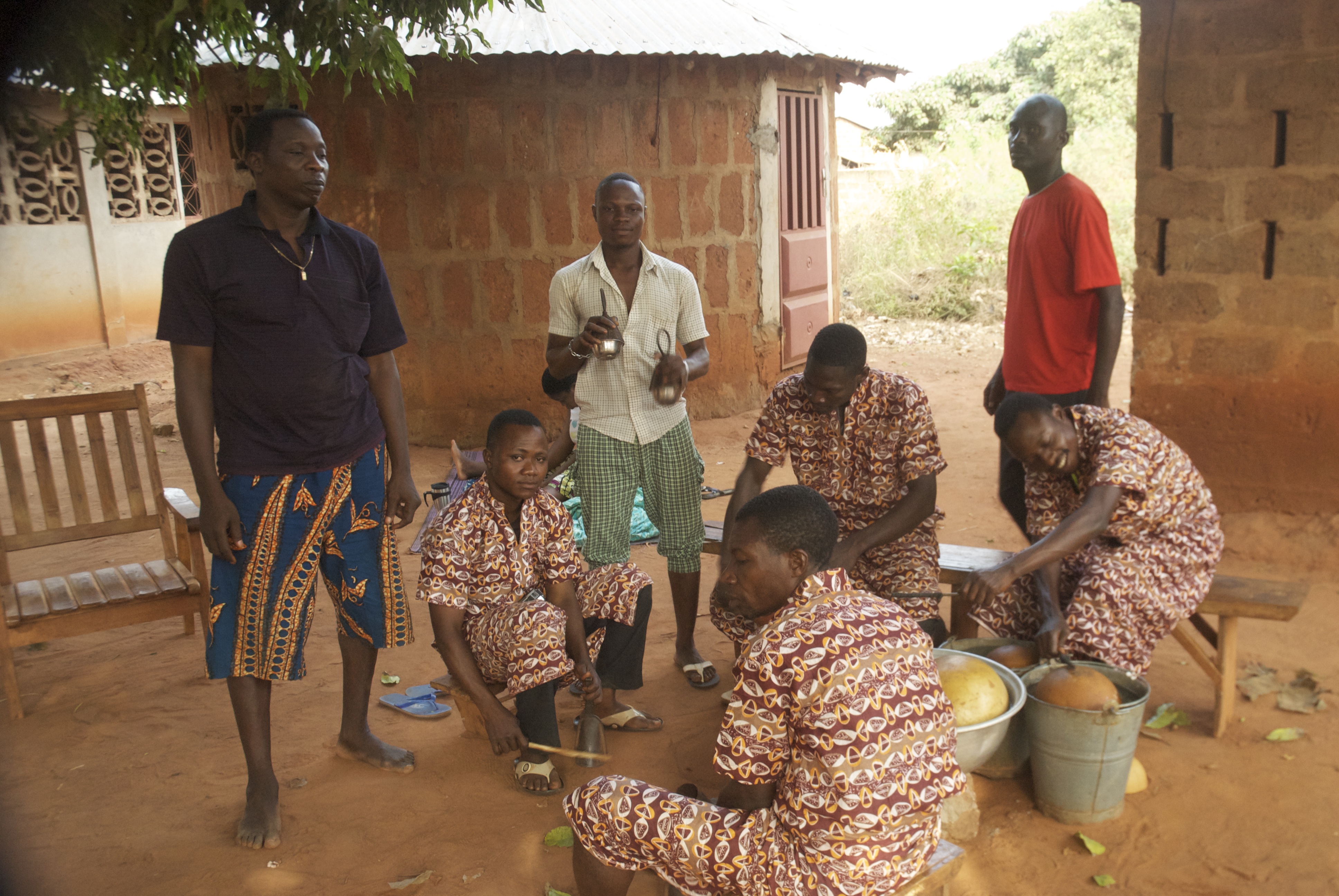Among the many fine reissue labels exploring and revealing hidden realms of the world’s popular music, Analog Africa stands out for its thoroughness, classy packaging, and its deep dedication to storytelling about the great dance music of the 1960s and ‘70s. Label founder Samy Ben Redjeb is more than a determined crate-digger scouring vinyl troves of African and Brazilian cities. Once he’s done his collecting and listening and has chosen his tracks, his real work begins—tracking down the artists and producers, or often their next of kin, to learn all he can about the songs and their creators, to collect photographs and, importantly, to properly license the tracks.
This is Analog Africa’s second volume of Benin funk and proto-Afrobeat, full of James Brown-like screams as the title promises. Ben Redjeb’s sleuthing partner for this volume was Lokonon André, a Cotonou musician who was conveniently trained in espionage by the KGB in Moscow during Benin’s dictatorial, Marxist-Leninist regime under Mathieu Kérékou (1972-91). Kérékou was a tyrant who tried to shield Benin from foreign cultures—just ask Angelique Kidjo, who fled his rule for France in 1983. But as one artist interviewed here notes, Kérékou also boosted indigenous music. The shadow of his regime hangs over the music and stories in this collection. One of Benin’s most celebrated singers, Gnonnas Pedro, composed many patriotic songs for the despot, and he was certainly not alone. But Pedro also sang about poverty, racism, and in the Afrobeat classic on this collection, “How Much Love Naturally Cost,” the battle of the sexes. Pedro later enjoyed a brief but glorious star turn with the super-group Africando just before his death from cancer in 2004.
Now to the music itself, a bubbling, exuberant feast of 1963-80s retro giddiness from start to finish. Les Sympathics de Porto-Novo kicks off with “A Min We Vo Nou We (My Conscience is Clear),” hard funk with raunchily distorted guitar and a fantastic, vodoun-inspired percussion breakdown in the middle. Porto-Novo was once a slave port, and we learn that Les Sympathics formed in 1973 to escape “financial slavery” and created this song as part of a musical tit-for-tat with an abusive former bandleader. Ignace de Souza and the Melody Aces follow up with “Asaw Fofor,” a twist that distinctly echoes the era’s Batman theme, garnished with De Souza’s clear, smooth crooning. Delightful.
Later, we get Antoine Dougbé’s “Nounignon Ma Klon Midji,” a spare drum and guitar vamp with sassy brass, a strong lead vocal and a wah-wah guitar break. Dougbé was a fearsome vodoun adept who billed himself as “The Devil’s prime minister.” Apparently, this proved seriously intimidating to lesser adepts playing in Orchestre Poly Rythmo de Cotonou, with whom Dougbé also sang at times. Such details add delectable spice to the listening experience, but the music on its own is tasty enough. And on and on it goes, through 14 raw and rowdy tracks, ending with Poly Rythmo’s “Idavi,” a deep fusion of vodoun roots and Afrobeat suave showcasing a poignant, crying vocal.
This volume is also available in a handsome two-disc vinyl edition, a must for fans of golden-era West African dance music.














